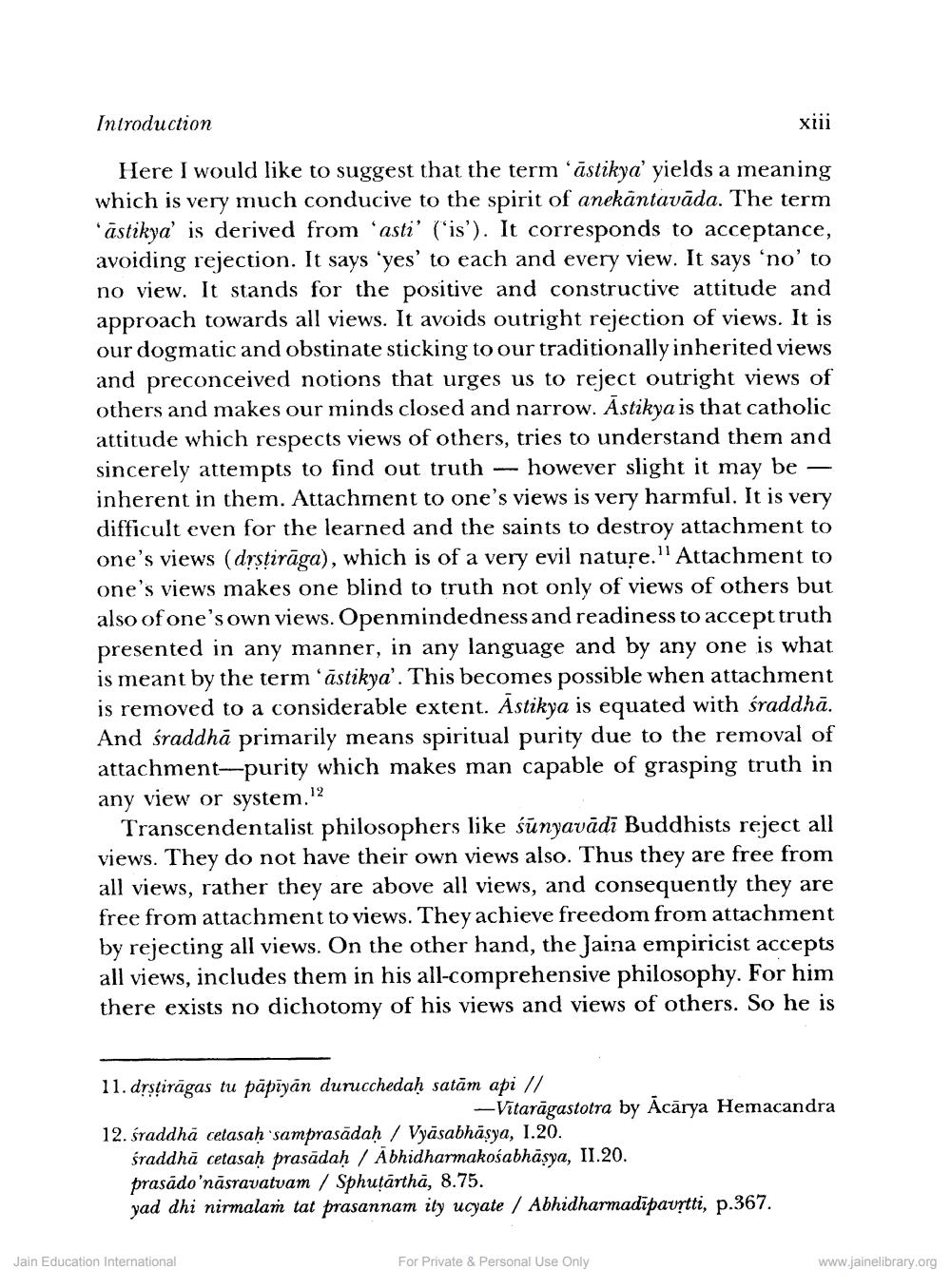________________
Introduction
Here I would like to suggest that the term 'āstikya' yields a meaning which is very much conducive to the spirit of anekantavada. The term 'astikya' is derived from 'asti' ('is'). It corresponds to acceptance, avoiding rejection. It says 'yes' to each and every view. It says 'no' to no view. It stands for the positive and constructive attitude and approach towards all views. It avoids outright rejection of views. It is our dogmatic and obstinate sticking to our traditionally inherited views and preconceived notions that urges us to reject outright views of others and makes our minds closed and narrow. Astikya is that catholic attitude which respects views of others, tries to understand them and sincerely attempts to find out truth however slight it may be inherent in them. Attachment to one's views is very harmful. It is very difficult even for the learned and the saints to destroy attachment to one's views (dṛṣṭirāga), which is of a very evil nature." Attachment to one's views makes one blind to truth not only of views of others but also of one's own views. Openmindedness and readiness to accept truth presented in any manner, in any language and by any one is what is meant by the term 'āstikya'. This becomes possible when attachment is removed to a considerable extent. Astikya is equated with śraddhā. And śraddha primarily means spiritual purity due to the removal of attachment-purity which makes man capable of grasping truth in any view or system. 12
-
xiii
Jain Education International
Transcendentalist philosophers like sunyavādī Buddhists reject all views. They do not have their own views also. Thus they are free from all views, rather they are above all views, and consequently they are free from attachment to views. They achieve freedom from attachment by rejecting all views. On the other hand, the Jaina empiricist accepts all views, includes them in his all-comprehensive philosophy. For him there exists no dichotomy of his views and views of others. So he is
-
11. dṛṣṭirāgas tu papiyan durucchedaḥ satām api // -Vitaragastotra by Acarya Hemacandra
12. śraddha cetasaḥ samprasadaḥ / Vyāsabhāṣya, 1.20. sraddha cetasaḥ prasadaḥ / Abhidharmakośabhāṣya, II.20. prasado 'nasravatvam / Sphuṭārtha, 8.75.
yad dhi nirmalam tat prasannam ity ucyate / Abhidharmadipavṛtti, p.367.
For Private & Personal Use Only
www.jainelibrary.org




